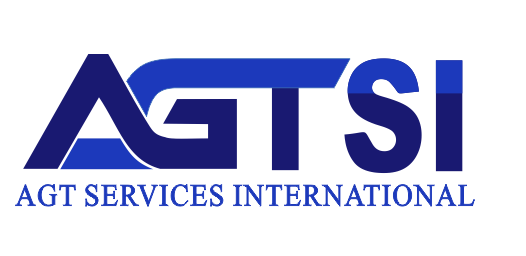Introduction:
Negotiating recruitment agency fees with clients is an important aspect of managing a prosperous recruiting business. This guide breaks down why negotiating recruitment agency fees with clients is important and gives useful tips on how to negotiate recruitment agency fees well with clients. We’ve looked at what others in the hiring industry are doing to help you feel more confident and clear when negotiating staffing agency Fees. Our goal is to give you the knowledge you need to navigate these discussions with confidence.
Recommended: How to Start a Recruitment Agency?
Why is Negotiating Recruitment Agency Fees with Clients Important?
Negotiating recruitment Agency fees with clients stands as a key part of the domain of hiring, bearing significant weight for both recruiters and client businesses alike. This fee-negotiating process involves a strategic discussion and agreement on the financial terms associated with recruitment services. Here’s a closer look at why negotiating recruitment fees client with is of utmost importance:
1. Clarity in Expectations and Fair Investment
The negotiation of hiring fees opens a channel for transparent discussions regarding the costs bonded to the recruitment process. This fee discussion establishes clear expectations for both recruiters and clients, ensuring a shared understanding of the financial commitment required to secure top talent. More importantly, this dialogue contributes to performing recruitment not only as a cost but as a calculated investment for clients to the hiring team.
Recommended: How To Choose The Right Recruitment Agency For Your Business?
2. Aligning Services with Value
When recruiters discuss how much they’ll be paid for finding employees, it’s like a special chance to show how valuable their recruitment services are. They can explain the good things they offer, like access to good job candidates, knowing a lot about the hiring job, and helping with the hiring process. This way, recruiters can make sure the agreed-upon pay is fair and makes sense for the great recruitment service they provide.
3. Customizing Solutions and Reflecting Industry Standards
Each client or company has its own specific needs when it comes to hiring new employees. Negotiating fees is like finding the right price for the right services modified to what each client or company requires. This way, companies pay for exactly what they need when it comes to hiring. Working together to set fair hiring fees during discussions is important. It helps make sure the recruitment fees are not only competitive but also follow the usual practices in the recruitment industry.
Recommended: Types of Recruitment Agencies
4. Mitigating Financial Risks and Building Long-Term Partnerships
Looking at it from the recruiter’s point of view, discussing recruitment fees is like making a smart plan to avoid money troubles during the hiring process. If the terms, like how long the guarantee lasts and what happens if something unexpected occurs, are clearly laid out, it helps the recruiter avoid losing money. Also, when both the recruiter and the client agree on everything through a successful hiring fee discussion, it sets the stage for a strong and long-lasting hiring partnership. This kind of partnership is built on trust and working together well over a long time.
5. Enhancing Recruitment Efficiencies
Talking about negotiating staffing fees is like having a detailed chat about how much it costs to get help with hiring employees. This way, everyone involved can make sure they agree on how much work, time, and skill is needed. It helps the recruiters figure out the best way to find and hire people, making the whole hiring process work better.
Recommended: What is Staffing Agency? Types of Staffing Companies and their Working Process
12 Pro Tips for Negotiating Recruitment Agency Fees with Client:
1. Understanding the Basics
Every time we start looking for new people to join a company, it’s important to really understand what the company needs and what problems they might be facing in finding the right employees. We can start the conversation by asking questions that let the company share what’s difficult for them in hiring. This way, we can have a special talk focused on what they specifically need.
2. Equip Yourself with the Right Information
When you’re negotiating recruitment agency fees with the client, it’s important to be well-prepared, especially when the client or company is sharing their hiring challenges. Just like at the beginning of the recruitment journey, where we understand the client’s needs, now you need to equip yourself with the right information for successful negotiations. Here’s your guide to navigating these discussions.
a. Understand Your Market
Research and know the typical recruitment agency fees in your geographic area and niche. Analyze the fees charged by competitors you regularly encounter in your industry.
b. Calculate Resources Needed
Determine the resources, both in terms of time and money, required to secure clients and make successful placements. Consider investing in recruiting software, hiring sources, or utilizing tools like a LinkedIn Recruiter to enhance your capabilities.
c. Client-Specific Information
Gather specific details about your client, such as the type of candidate they need and the urgency of the hire. Consider how not filling the job might affect the business and think about how important the position is in the company. Determine how easy or hard it is to find the right people for a job in today’s job market. Be aware of alternative methods the client may have tried and their reasons for not succeeding.
d. Client’s Position and Needs
Assess if the client is in a position of urgency, even if they might not admit it during negotiations. Use information from job specs or other sources to understand the client’s situation, like unsuccessful past attempts to fill the role.
e. Determine Your Bottom Line:
Determine the lowest hiring fee you are prepared to agree upon, taking into account the worth of your services and time. If the client negotiates below this threshold, be prepared to consider walking away from the job order.
Recommended: What is a Manpower Recruitment Agency? How Workforce Consultants Firms Works?
3. Articulating Unique Selling Points
After figuring out the problems your client is facing in hiring, it’s really important to explain how your recruitment services can help. Point out special things about your hiring agency, like having access to good candidates, being experts at helping new hires, or having a track record of HR success. This shows that your staffing agency is different and stands out in the competitive world of hiring.
Before you dive into talking about how much it costs to use your HR agency, it’s good to know about negotiating. Recognize the challenges your client is having with hiring and come up with solutions that fit their needs. For example, if they’re worried about getting things done quickly and on a budget, tell them about your recruitment agency’s skill in finding good candidates fast and having a cost-effective way of charging for it.
4. Deciphering Your Local Market Rates for Comparable Services
Knowing how much other companies charge for hiring services in your area is really important when you’re talking about how much to charge for your recruiting services. By looking at what other staffing firms are charging, you can get a good idea of what your clients might expect to pay. It also helps you understand how flexible you can be in negotiating recruiting fees. When you use this information during your discussion, it makes it easier to explain why your recruitment agency’s fees are not just fair but also competitive compared to what other recruiting companies are charging.
Recommended: How to Start a staffing Agency with No Money from Home?
5. Master the Art of Fee Negotiation
To have successful dealings with clients, you first need to understand the hiring fees you charge. Explore different types of recruitment fees, like contingency fees and fixed retainers, so you know how they work. When talking with clients, use what you’ve learned to make a clear agreement with them. Understanding your staffing fees helps you have better discussions and partnerships with your clients.
6. Talking About Hiring Fees in Simple Terms
Good communication is super important when you’re discussing hiring fees. It’s like the foundation of successful negotiations. To make things clear, Malik Faisal Arfat suggests figuring out hiring fees by using a percentage of how much money the company makes in a year. If the job is for general labor, it’s often a good idea to keep the fee around 10-12%, especially if you’re new to recruiting.
Recommended: What is Permanent and Contract Recruitment?
7. The Fee as an Investment
It’s really important to tell clients that the hiring fee isn’t just a cost but more like an investment. The way we decide on the fee should match up with the value we give – think of it like a single payment that guarantees getting good, qualified workers. Making sure clients see the recruitment fee as a great deal is key to shaping how they look at it.
8. Change the Discussion From Discounts to a Different Topic
When a client raises the topic of discounts, view it not only as a negotiation on pricing but as a gateway to deepen your connection with them. Examine the reasons behind their request for a discount and explore avenues for a mutually beneficial arrangement. For example, in a dependent arrangement, offering a discount could be connected with offering an exclusive or container agreement, promoting the partnership to a new level. Use a cultured recruiting CRM like zoho. You can improve the deal by combining your ATS, promoting transparency, and enabling collective efforts in the search for the perfect candidate. Change the discount discussion into an opportunity for both parties to succeed.
Recommended: 10 Steps Saudi HR Managers Can Follow to Choose the Best Manpower Recruitment Agency
9. Be Ready to Explain VALUE Over FEE
Addressing client concerns about recruitment fees is a critical aspect of fostering successful partnerships. Clients often question the value they receive in exchange for the fees paid, making it imperative to articulate the comprehensive services your agency offers. Understanding that many clients feel they might be overpaying or that fees hinder them from hiring the best candidate, it becomes crucial to emphasize the value your services bring to their business.
For example, during discussions, you can highlight the full range of services covered by your fee, containing important stages from job placement to onboarding and follow-up support. This approach ensures that your team takes on these responsibilities, sparing the client’s team from time-consuming tasks. Highlighting the efficiency and cost-effectiveness of your services reinforces the idea that the fee is a valuable investment in their hiring process.
10. Navigating the Guarantee Period
The guarantee period introduces a required part of the negotiation process. It’s a commitment that the employee sourced through the agency will remain with the client for a specified duration after their start date. As suggested, Adjusting the guarantee period based on the type of position is a fine approach. For general labor, periods ranging from 30 to 60 days are often suggested.
Recommended: MANPOWER RECRUITMENT SERVICES BY INDUSTRY
11. The Replacement Model
In the unexpected terrain of human resources, acknowledging the possibility of candidate turnover is essential. Instead of refunding money, the focus should be on offering replacements. This not only conforms with industry standards but also ensures that the client receives the value promised.
12. Educating Clients for Mutual Success
Recruiters play a key role in negotiations in educating and influencing clients. Clearly explaining the cause behind the fee and guarantee structures enables understanding. This is not just marketing; it’s a joint effort where both parties work towards mutual success.
11. Know How To Explain ROI
a. Craft a Clear Definition
Understanding ROI is important for both recruiters and clients. In simple terms, ROI represents the financial returns a client receives as a direct outcome of your services. At the start of any client conversation, establishing a clear definition sets the stage for a broad discussion about the value your recruitment agency brings.
b. Align Services with Client Needs
To effectively explain ROI, look into the details of the client’s business. Shape your explanation to showcase how your hiring services directly address their pain points and contribute to their overall success. By matching your offerings with their needs, you support the concept that your recruitment agency is not just a service but an investment in their specific business goals.
c. Demonstrate Success Metrics
Highlighting your agency’s track record is a powerful way to verify declarations about ROI. Much like showcasing a high placement rate, provide tangible success metrics that highlight your ability to produce results always. This could include metrics like time-to-hire, cost-per-hire, and quality-of-hire, giving clients a complete view of your recruitment agency’s impact.
d. Emphasize Comprehensive Support
In the process of explaining ROI, highlight the complete support your hiring agency offers more than posts. Whether it’s expert help in onboarding, continuous follow-up support, or Using advanced recruitment tools, representing the range of your HR services positions your hiring agency as a valuable ally in their long-term success.
12. Focus On Your Ability to Save Clients Time and Money
In the challenging world of recruitment, highlighting the ability to save clients time and money is important. Recruiters, with their expertise, play an important role in optimizing the hiring process. Actually, communicating this advantage can greatly impact a client’s decision.
Final Thoughts:
Guiding recruitment agency fee discussions with clients requires a combination of confidence, transparency, and a sharp understanding of client needs. By mastering the art of negotiating recruitment agency fees, you not only build stronger client relationships but also establish your agency as a valuable partner in their hiring success.
Remember, the key lies in transparent communication, addressing client concerns, and consistently delivering results that reinforce the value of your recruitment services



















